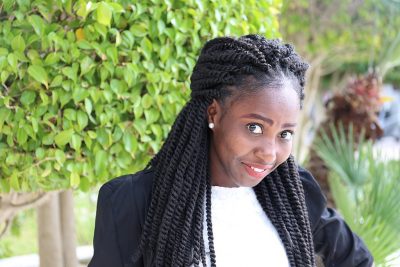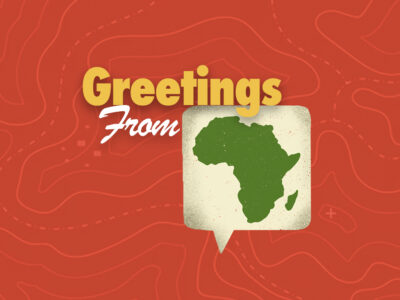
Photo provided by Ursula Zage.
In 2019 as part of a social media campaign to celebrate linguistic diversity online, African language activists and advocates will be taking turns managing the @DigiAfricanLang Twitter account to share their experiences with the revitalization and promotion of African languages. This profile post is about Ursula Zage (@ZuZage) and what she plans to discuss during her week as host.
Rising Voices: Please tell us about yourself.
I am a researcher, a writer, a Wikipedian and the Co-founder of Global Open Initiative (GOI) Foundation, a non-profit organization whose goal is to help make knowledge and data freely accessible to everyone. While the use of indigenous languages are on the decline, GOI Foundation is passionate about the prospects of Wikimedia projects serving the purpose of language preservation platforms that anyone could edit. Interventions currently undertaken include: Incubating languages that do not yet exist on Wikipedia, expanding existing languages that are currently experiencing dwindling levels of participation, and recruiting expert local languages writers to become volunteers.
RV: What is the current status of your language on the internet and offline?
According to languagescientific.com around 58% of Ghana's population speak Twi as well as around 30% of those who are in Ivory Coast. The Twi Wikipedia had only 607 articles (mostly stubs) and less than 10 users who made 5+ edits per month.
RV: On what topics do you plan to focus during the week that you’ll manage the @DigiAfricanLang Twitter account?
I intend to focus on 1) the project initiated to help improve online content in Twi, 2) the challenges of recruiting expert Twi writers to become volunteers.
RV: What are the main motivations for your digital activism for your language? What are your hopes and dreams for your language?
I was raised in an environment where I was required to speak English in school and at home. And so I grew up to be a good English reader and writer but could barely speak or write in my indigenous language. I feel so ashamed and left out from conversations when I meet people from my hometown because I find it hard to speak well the language that connects me with them. I believe same can be said about many Ghanaian youth and children; we have grown to become pros of the English language despite relegating our indigenous languages to the background. As technology rapidly advances and everything is going online, I think it is needful that content be created in our local languages as well so that people who can only speak and write in Twi are not left out.

